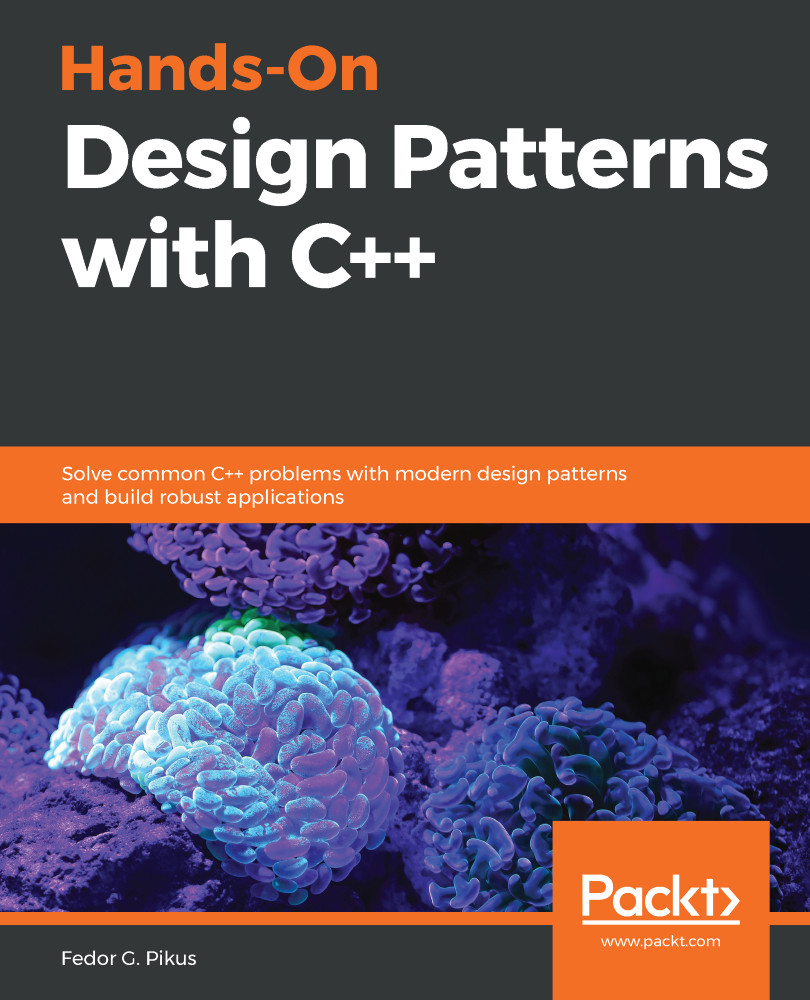Probably the greatest difference between generic programming in C and C++ is type safety. It is possible to write generic code in C—the standard function qsort() is a perfect example—it can sort values of any type and they are passed in using a void* pointer, which can really be a pointer to any type. Of course, the programmer has to know what the real type is and cast the pointer to the right type. In a generic C++ program, the types are either explicitly specified or deduced at the time of the instantiation, and the type system for generic types is as strong as it is for regular types. Unless we want a function with an unknown number of arguments, that is, prior to C++11, the only way was the old C-style variadic functions where the compiler had no idea what the argument types were; the programmer just had to know and unpack the variable arguments...
-
Book Overview & Buying

-
Table Of Contents

Hands-On Design Patterns with C++
By :

Hands-On Design Patterns with C++
By:
Overview of this book
C++ is a general-purpose programming language designed with the goals of efficiency, performance, and flexibility in mind. Design patterns are commonly accepted solutions to well-recognized design problems. In essence, they are a library of reusable components, only for software architecture, and not for a concrete implementation.
The focus of this book is on the design patterns that naturally lend themselves to the needs of a C++ programmer, and on the patterns that uniquely benefit from the features of C++, in particular, the generic programming. Armed with the knowledge of these patterns, you will spend less time searching for a solution to a common problem and be familiar with the solutions developed from experience, as well as their advantages and drawbacks. The other use of design patterns is as a concise and an efficient way to communicate. A pattern is a familiar and instantly recognizable solution to specific problem; through its use, sometimes with a single line of code, we can convey a considerable amount of information. The code conveys: "This is the problem we are facing, these are additional considerations that are most important in our case; hence, the following well-known solution was chosen."
By the end of this book, you will have gained a comprehensive understanding of design patterns to create robust, reusable, and maintainable code.
Table of Contents (21 chapters)
Preface
 Free Chapter
Free Chapter
An Introduction to Inheritance and Polymorphism
Class and Function Templates
Memory Ownership
Swap - From Simple to Subtle
A Comprehensive Look at RAII
Understanding Type Erasure
SFINAE and Overload Resolution Management
The Curiously Recurring Template Pattern
Named Arguments and Method Chaining
Local Buffer Optimization
ScopeGuard
Friend Factory
Virtual Constructors and Factories
The Template Method Pattern and the Non-Virtual Idiom
Singleton - A Classic OOP Pattern
Policy-Based Design
Adapters and Decorators
The Visitor Pattern and Multiple Dispatch
Assessments
Other Books You May Enjoy
